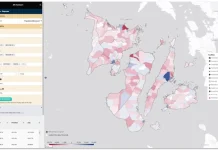Long Term Evolution (LTE) wireless internet speeds and 4G availability in the country has improved, according to a global research by OpenSignal.
Download speeds in the Philippines increased to 8.23 mbps as of October 2017, up from 7.27 mbps in 2016.
LTE coverage also went up to 58.83 %, up from 44.80 % in the same period, according to the State of LTE Report 2017 by the global internet mapping company.
The Philippine internet improvements were mapped by OpenSignal, although it also ranked the country as still lagging far behind its South East Asian neighbors in terms of overall internet speed and access. In general, speeds in the Philippines remain slow, well below both the global 4G average of 16.2 Mbps and the global 3G average of 4.4 Mbps, as measured in the OpenSignal State of LTE report.
Singapore led the global survey for download speeds at 46.64 mbps, followed by South Korea at 45.85 mbps.
South Korea also ranked 1st for LTE availability with 96.69 % of the country covered, followed by Japan at 94.11 %.
In an earlier Mobile Networks Update about the Philippines released in September 2017, OpenSignal tracked the changes seen in 3G and 4G measurements for Smart and Globe over the last six months.
- Globe led in 4G availability. OpenSignal users were able to latch onto Globe’s LTE signals more than 62.6% of the time. Both operators, however, saw sizable improvements in their availability scores since the spring. Smart’s availability jumped 12 percentage points in our measurements, while Globe’s availability increased more than 7 percentage points.
- 3G and 4G Speeds remained steady for both operators since OpenSignal’s last report. Smart held onto OpenSignal’s 4G speed award with an average download of 10.6 Mbps, increasing slightly over the last six months. Meanwhile both operators again drew for the 3G prize.
- Smart was able to deliver its faster LTE connections to customers more often, leading to an overall speed of 4.2 Mbps in our measurements.
OpenSignal notes the global 4G market has reached a transition point where the internet industry instead of focusing on boosting speeds, is intent on boosting accessibility to 4G signals. OpenSignal parsed more than 50 billion measurements worldwide to see how 77 countries stacked up in 4G performance.













